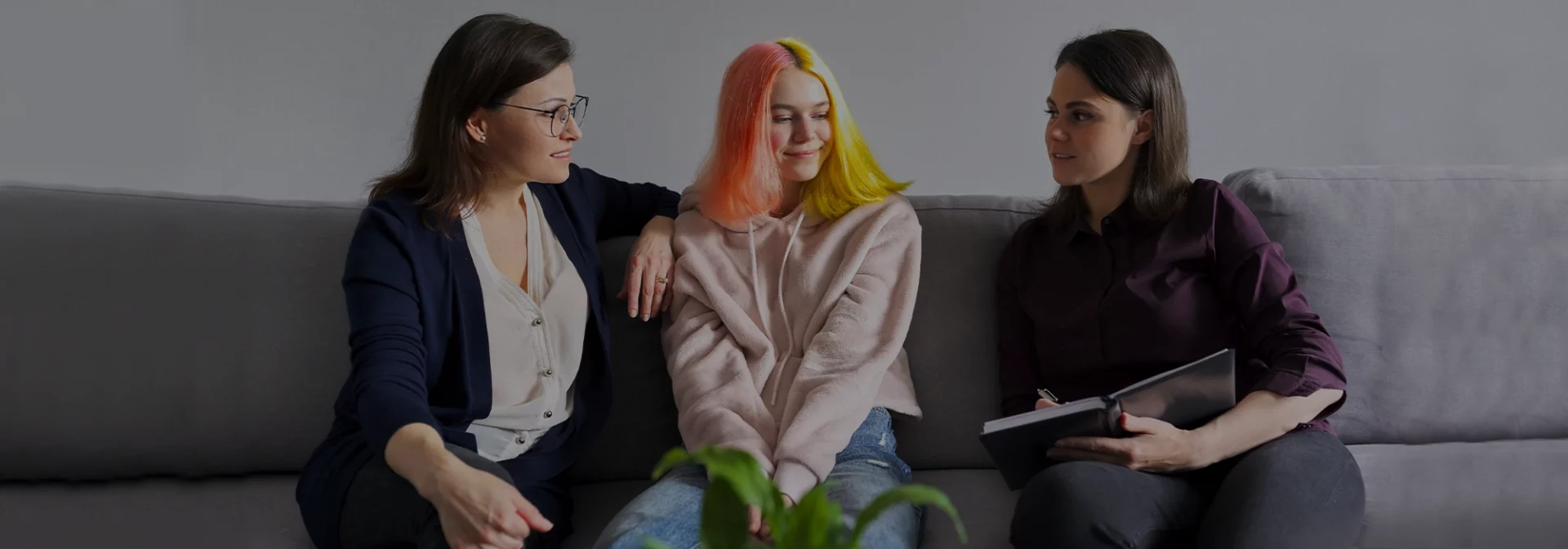When choosing a therapist, it’s important to find a good match for your teen. Here are 6 tips to help you find the best match.
There’s been much stigma around seeking out a therapist and engaging in counseling. People may view it as a weakness, which can make it difficult for us to seek the help for ourselves or others, but help that we need and could benefit greatly from.
When it comes to our young people and loved ones, most of us are willing to do whatever it takes to ensure that they are feeling well, and living a happy, healthy life. For this reason, caregivers often seek out the help of a therapist when they notice that their preteen or teen is struggling socially or emotionally.
When you make the decision to seek therapy for your preteen or teen, it can also be extremely overwhelming to try to find the right person to help. Whether it is insurance, lengthy wait lists, or unfortunately, stories about negative experiences with providers, finding the right therapist is not only possible, but can be a much smoother and efficient process if a few things are sorted out from the beginning.
Decide What You Are Looking for in a Therapist
If your young person is old enough and well enough (for example they are not seeing or hearing things that aren’t there or having a hard time being based in reality), their input should be incorporated to give you a better chance at finding a good match.
Questions to Consider When Searching for a Therapist:
- Are you able to engage in tele-therapy either via video chat or phone call?
- Should your young person’s therapist be male or female?
- Should you use someone of a similar cultural background?
- Should they be someone with similar life experiences?
- Should your young person’s therapist be someone who has worked with children experiencing the same things as your young person?
- How old should they be?
- How far are you willing to drive for therapy?
- Are you open to an in-home provider?
- Can you pay out-of-pocket or will you want/need to use your health insurance?
How to Find a Therapist
Once you have a general sense of the answers to these questions you are ready to dive into the search.
1. Ask People you Know and Trust
Ask the people you know and trust (friends, family, co-workers) if there is a therapist that they would recommend. It is likely that you know someone who has engaged in therapy or who knows someone who has. You can get some really good leads that way.
2. Check With the School Counselor
If your loved one is attending a school program, they may have onsite counselors who can provide direct care or helpful resources.

Ready to elevate your parenting? Become a member of the BLOOM family today!
Gain access to workshops, coaching, and a network of supportive parents. Don’t navigate this journey alone –
3. Do a General Google Search for Therapists in Your Area
Depending on where you live, the number of therapists in your area will vary. Call as many people on the list that fit your search criteria and leave them a message. It’s unclear from Google which therapists have a waiting list, and sometimes it can be difficult to decipher if they take your health insurance. So, if you decide to go this route, making a list of who you have called and what you know about them can help you to keep track of it all.
4. Ask Your Pediatrician for a Referral
Your pediatrician’s office likely has relationships with mental health providers in the community. Keep in mind that these providers often have a waitlist. Get on the waitlist no matter how long it is. You never know when they will call you and whether or not their services will be helpful.
5. Call Your Insurance Company
They can give you a list of providers that take your health insurance.
6. Use Tools to Search for a Therapist That Fits Your Criteria
Check out the following tools to help you search for a therapist that can help your young person.

PsychologyToday.com
Filter your search for your young person’s therapist by geographic area, insurance, specialization, and more.

GoodTherapy.org
Filter your search for your young person’s therapist by geographic area, insurance, specialization, and more.

McLean Hospital’s Support Center
Chat with a customer support representative that can guide you to resources specific to your needs.
Try PsychologyToday.com, and GoodTherapy.com. You can filter your search for your young person’s therapist by geographic area, insurance, specialization, and more. Also, check out McLean Hospital’s Support Center to chat with a customer support representative that can guide you to resources specific to your needs.
These are paid options for therapy via messaging, phone or live video chat. Check out Betterhelp.com, Talkspace.com, Pridecounseling.com, Teencounseling, and Brightside Health (online therapy and medication, specializing in anxiety, depression) for some online therapy options.
Once you set up your young person’s first session with their therapist, just remember: If it doesn’t work out you can always find someone else and try again. Much like many things in the mental health field, finding a therapist can be a trial and error process. Be open to that process and don’t get discouraged. It will all be worth it once you’ve found the right one!
7. Get You & Your Teen a Support Network
7 Cups
Has listeners available especially for teens, so you can chat confidentially whenever you need to. They offer teen community forums, and chat rooms with peers who understand what they are going through.
ADAA | Anxiety and Depression Association of America
Offers discussion forums and support group, support for anxiety and depression
NAMI Connection
Offers individual and family support meetups in person or virtually in over 600 locations.
MHA | Mental Health America
Online mental health support groups for over 20 mental health conditions.
This article was originally published on PinnaclePartnerships.org and only minimally edited for clarity.
Parenting can leave you feeling overwhelmed and alone, but at BLOOM you have a team behind you. Access Live and On-Demand Workshops led by the experts. Get answers to your most pressing questions through our Ask the Expert Platform. Find your village and share ideas in our Community Group surrounded by fellow parents and caregivers. Or get personalized coaching in 1-on-1 Coaching Sessions tailored to your needs. We know raising tweens and teens is hard – that’s why we created BLOOM to nurture you through the challenges and help you flourish.
